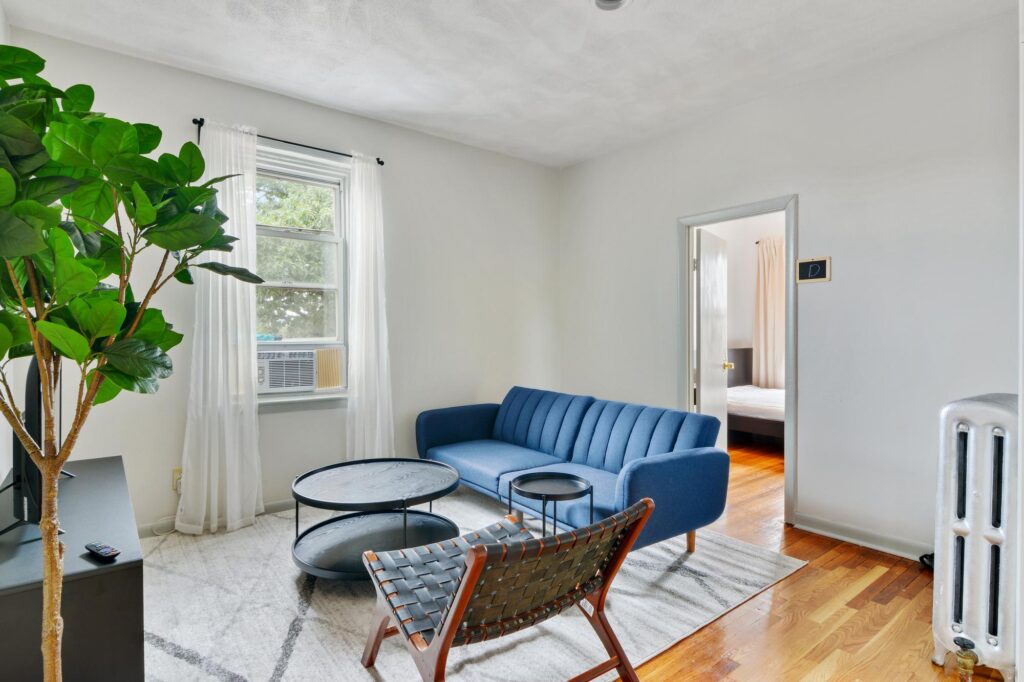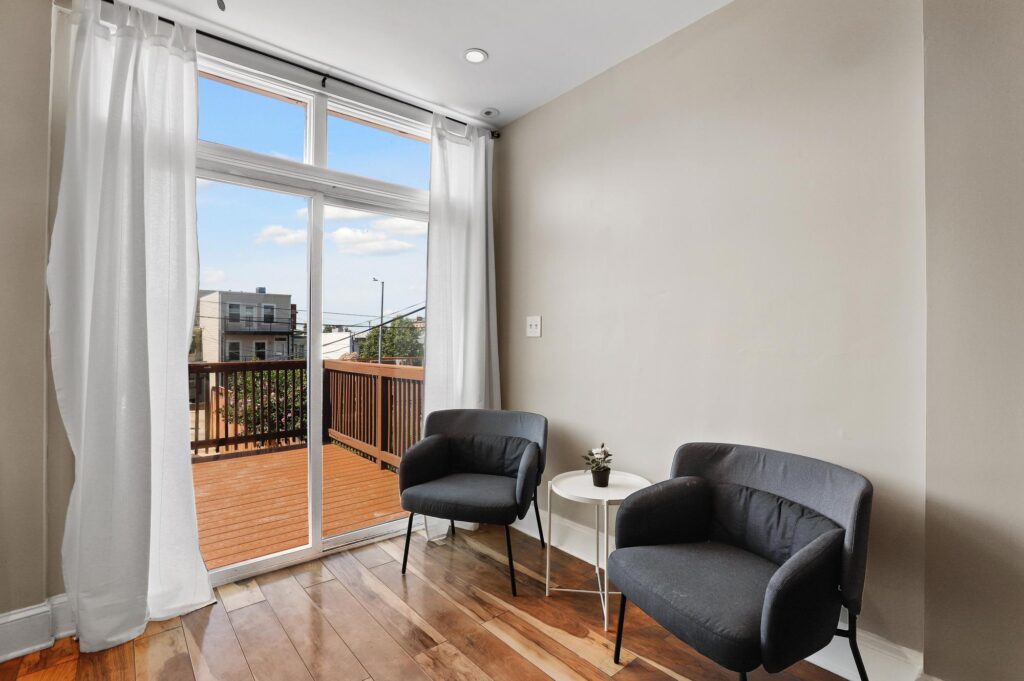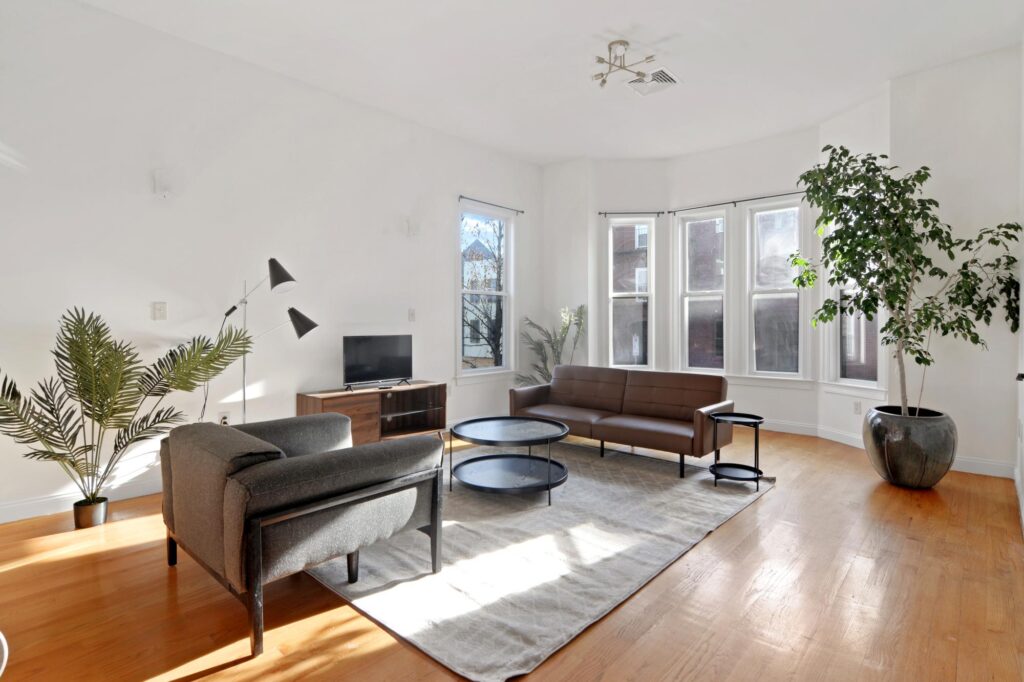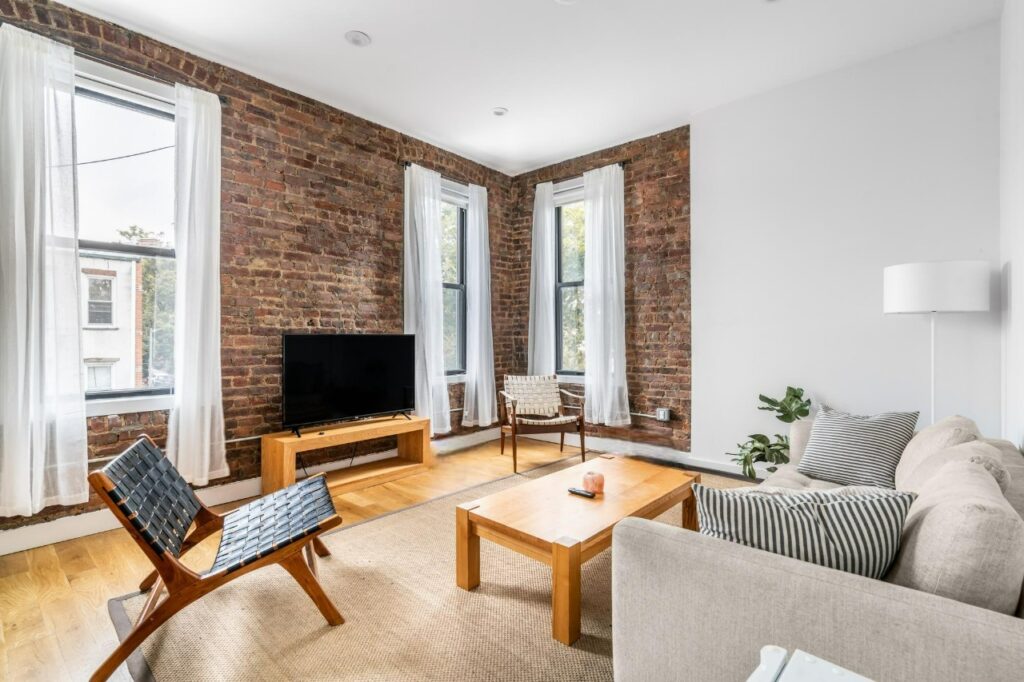Estimated reading time: 11 minutes

Let’s be honest – living with strangers can feel risky. You’re trusting someone you barely know with your peace of mind, your belongings, and your monthly budget. But when rent in cities like New York or Boston costs more than most people’s entire take-home pay, splitting expenses with roommates becomes less of a choice and more of a survival strategy.
The good news? Finding safe, compatible roommates isn’t impossible if you know where to look and how to protect yourself. Here’s your roadmap to roommate hunting that prioritizes both your safety and your sanity.
Why Smart Roommate Selection Matters More Than Ever
Bad roommates don’t just make your living situation uncomfortable – they can genuinely mess up your life. We’re talking about people who might skip out on rent, bring unsafe situations into your home, or create enough drama to affect your work and mental health. When you’re locked into a lease together, a poor choice can cost you thousands in covering their expenses or breaking lease agreements.
On the flip side, good roommates can become lifelong friends, workout partners, and the reason you actually enjoy coming home after long days. They make expensive cities affordable and can turn a basic apartment into a real home.
Enjoy a hassle-free, high-end rental experience for stays of one month or longer in major US cities.

Fully-furnished rooms and apartments with flexible lease. Apply today and move in tomorrow.
Where to Start Your Search (Ranked by Safety Level)
Tier 1: Maximum Safety – Professional Services
Managed Co-Living Companies Companies like June Homes handle all the screening for you. They background-check potential roommates, verify employment, and match people based on lifestyle compatibility. You’re paying extra for this service, but you’re also getting pre-vetted housemates and professional support if conflicts arise.
University Housing Programs If you’re a student or recent grad, campus housing offices often run roommate matching services. These typically include basic verification and connect you with people in similar life stages with academic references.
Tier 2: High Safety – Established Platforms
SpareRoom The most comprehensive roommate platform in the US. Detailed profiles, photo verification, and built-in safety features make this a solid choice for serious roommate hunters.
Roomies.com
Focuses specifically on compatible matching with questionnaires about lifestyle, cleanliness, and social preferences. Good screening tools and city-specific services.
Roomi App Popular with young professionals, includes identity verification and detailed lifestyle matching. The mobile-first design makes it easy to browse and message potential matches.
Tier 3: Moderate Safety – Social Networks
Facebook Housing Groups Search for “[Your City] Housing” or “[Your City] Roommates” groups. Look for groups with active moderation and clear posting rules. The advantage here is you can see people’s broader social media presence for additional context.
Professional Networks LinkedIn groups, company Slack channels, or industry meetups. Finding roommates through professional connections adds a layer of accountability since your reputation is involved.
Reddit City-specific subreddits like r/NYCroommates or r/bostonhousing. You can check posting history for red flags, but you’re doing all the vetting yourself.
Tier 4: Higher Risk – General Platforms
Craigslist Still active for roommate searches but requires maximum caution. Expect to do extensive screening and always meet in public first.
Traditional Rental Sites Zillow, Apartments.com, and similar sites sometimes include roommate listings, but they’re primarily designed for landlord-tenant relationships, not roommate matching.
Red Flags That Should End Your Interest Immediately
Profile Red Flags
- No photos or only distant/unclear images
- Extremely minimal bio or information
- Inconsistent details between messages and profile
- Only wants to communicate through text (won’t do phone/video calls)
- Asks for money before you’ve met in person
- Won’t provide references or gets defensive when asked
Communication Red Flags
- Pressures you to decide quickly without proper meetings
- Changes their story about work, income, or living situation
- Asks inappropriate personal questions about your schedule or belongings
- Responds to reasonable questions with hostility or evasiveness
- Uses guilt trips or manipulation tactics during conversations
Meeting Red Flags
- Shows up late repeatedly without good explanations
- Appears under the influence or smells of substances
- Speaks only negatively about previous roommates or landlords
- Seems to have no stable income source
- Brings unexpected people to meetings without asking
- Won’t let you see their current living space
How to Screen Potential Roommates Safely
Phase 1: Digital Vetting
Start by thoroughly reviewing their online presence. Check social media profiles for consistency with what they’ve told you. Look for signs of stability – steady job posts, normal social interactions, lifestyle that aligns with what they’ve described.
Essential questions to ask potential roommates include work schedules, cleanliness standards, guest policies, and how they handle conflicts. Pay attention to how they answer – evasive responses or hostility to reasonable questions are warning signs.
Phase 2: Safe First Contact
Always start with a phone or video call before meeting in person. This helps verify they match their photos and gives you a sense of their communication style. If they refuse video calls or seem very different from their online persona, that’s worth noting.
For in-person meetings, choose busy public places during daylight hours. Coffee shops near public transportation work well. Bring a friend or at least tell someone exactly where you’ll be and when you expect to return.
Phase 3: Reference Checking
Ask for contacts from previous roommates, landlords, or employers. Actually call these references – many people assume you won’t bother, so this step eliminates a lot of problematic candidates.
Good questions for references include: “How did they handle shared responsibilities?” “Were they reliable with money?” “How did they communicate about problems?” “Would you live with them again?”
Phase 4: Financial Verification
Request proof of income like recent pay stubs or bank statements. A general rule: their monthly income should be at least three times their share of the rent. Understanding how much rent someone can afford based on their income helps you avoid situations where they might struggle with payments.
Creating Your Own Attractive and Safe Profile
What Makes You Stand Out Safely
Write a detailed bio that covers your lifestyle, work schedule, and what you’re looking for in a roommate. Include information about your cleanliness standards, social habits, and any deal-breakers. Being specific helps filter out incompatible people early.
Use recent, clear photos that accurately represent you. Include at least one full-body shot and avoid heavily filtered images. Honesty here prevents awkward situations and attracts people who are compatible with the real you.
What to Keep Private
Don’t include your exact workplace address, your full name until you’re seriously considering someone, or details about your daily schedule that could compromise your safety. Keep financial information general – “stable income in marketing” rather than your exact salary.

Managing the Meeting Process Strategically
First Meeting Protocol
Meet in a busy public place during daytime hours. Good options include coffee shops, libraries, or food courts in shopping centers. Avoid bars (alcohol affects judgment), isolated areas, or anywhere that closes early.
Set a time limit – “let’s grab coffee for an hour” gives you a natural exit strategy if things aren’t going well. Prepare questions about roommate compatibility in advance so you don’t forget important topics.
What to Observe Beyond Words
Pay attention to how they treat service workers, their punctuality, and how they respond to your questions. Are they checking their phone constantly? Do they seem genuinely interested in finding a good match, or just desperate for housing?
Notice their current appearance and hygiene – this often reflects how they’ll maintain shared spaces. If they’re late, unprepared, or dismissive during your meeting, imagine living with that energy daily.
Second Meeting Considerations
If the first meeting goes well, suggest seeing their current living space. This gives insight into their cleanliness standards and lifestyle habits. If they’re hesitant to show you where they currently live, that’s worth questioning.
Consider meeting their current roommates if possible. Current housemates can provide honest insights about daily living habits that the person might not volunteer themselves.
Financial Safety and Agreements
Protecting Yourself Financially
Try to get separate leases when possible, so you’re not responsible for their portion if they can’t pay. If joint leases are unavoidable, document all financial agreements clearly and keep records of payments and shared expenses.
Set up clear systems for shared costs using apps like Venmo or Splitwise. Splitting bills with roommates becomes much easier when you have digital records of who paid what and when.
Setting Expectations Early
Create a roommate agreement that covers rent payment schedules, utility divisions, guest policies, cleaning responsibilities, and how you’ll handle conflicts. Having these conversations before moving in prevents many common disputes.
Discuss what happens if someone wants to move out early, how you’ll handle repairs and maintenance, and what constitutes grounds for asking someone to leave. These aren’t fun conversations, but they protect everyone involved.
Building Positive Roommate Relationships
Starting Off Right
Once you’ve found someone compatible, focus on building good roommate relationships. Set up your shared spaces together, establish house rules collaboratively, and plan occasional shared activities to build rapport.
Breaking the ice with new roommates doesn’t have to be awkward. Simple things like cooking together occasionally, sharing streaming service passwords, or just checking in about each other’s day can create a positive living environment.
Maintaining Boundaries
Even with great roommates, everyone needs personal space and privacy. Establish clear boundaries about personal belongings, bathroom time, kitchen usage, and guest policies. Respect these boundaries consistently to maintain harmony.
Good roommate etiquette includes cleaning up after yourself promptly, giving heads up about guests, keeping noise down during agreed-upon quiet hours, and addressing small issues before they become big problems.
When Things Go Wrong: Safety First
Early Warning Signs
Keep an eye out for changes in behavior, failure to follow agreed-upon house rules, bringing unknown people around frequently, or financial problems that affect shared expenses. Address issues early through calm, direct conversation.
If someone becomes hostile, threatening, or creates unsafe situations, prioritize your safety over trying to work things out. Document problematic behavior and know your options for getting out of the living situation safely.
Exit Strategies
Understand your lease obligations and local tenant laws before you need them. Know how much notice you need to give, what your financial responsibilities are, and whether you can find a replacement roommate or need to break the lease entirely.
Moving to a new place might seem drastic, but sometimes it’s the best option for your safety and wellbeing. Don’t let financial concerns trap you in genuinely unsafe or harmful living situations.
Special Situations and Considerations
Long-Distance Roommate Hunting
If you’re moving to a new city alone, extra caution is essential. Video chat extensively, ask for virtual tours, and consider short-term housing initially so you can meet people in person before committing to long-term arrangements.
Finding roommates in specific cities often requires understanding local housing markets and neighborhoods. Research area-specific groups and resources, and don’t rush into decisions just because you need housing quickly.
Student and Young Professional Considerations
College students should prioritize finding roommates with similar academic schedules and study habits. Consider factors like major, year in school, and social preferences when evaluating compatibility.
Young professionals benefit from finding roommates with stable incomes and similar lifestyle expectations. Consider work schedules, commute patterns, and career demands when assessing long-term compatibility.
International and Out-of-State Renters
Renting as a foreigner or newcomer presents additional challenges due to lack of local references and unfamiliarity with areas. Consider reaching out to cultural organizations, professional networks, or newcomer groups for connections and advice.
Making the Final Decision
Trust your instincts throughout this process. If something feels off, it probably is. Don’t ignore gut feelings just because you need housing quickly or someone seems “good enough.” The wrong roommate can be more expensive and stressful than paying higher rent for your own place.
Take time to find someone who shares your values around cleanliness, communication, and respect. The right roommate enhances your living experience, while the wrong one can make your home feel like a place you want to escape from.
Remember that roommate relationships can evolve into genuine friendships, but they start as business arrangements. Keep your safety and wellbeing as top priorities throughout your search, and don’t compromise on fundamental compatibility for the sake of convenience.
Finding good roommates safely requires patience, thorough screening, and clear communication. But when you find the right match, shared living can make expensive cities affordable while providing built-in social connections and support. Take your time, trust your instincts, and prioritize your safety – your future self will thank you.




